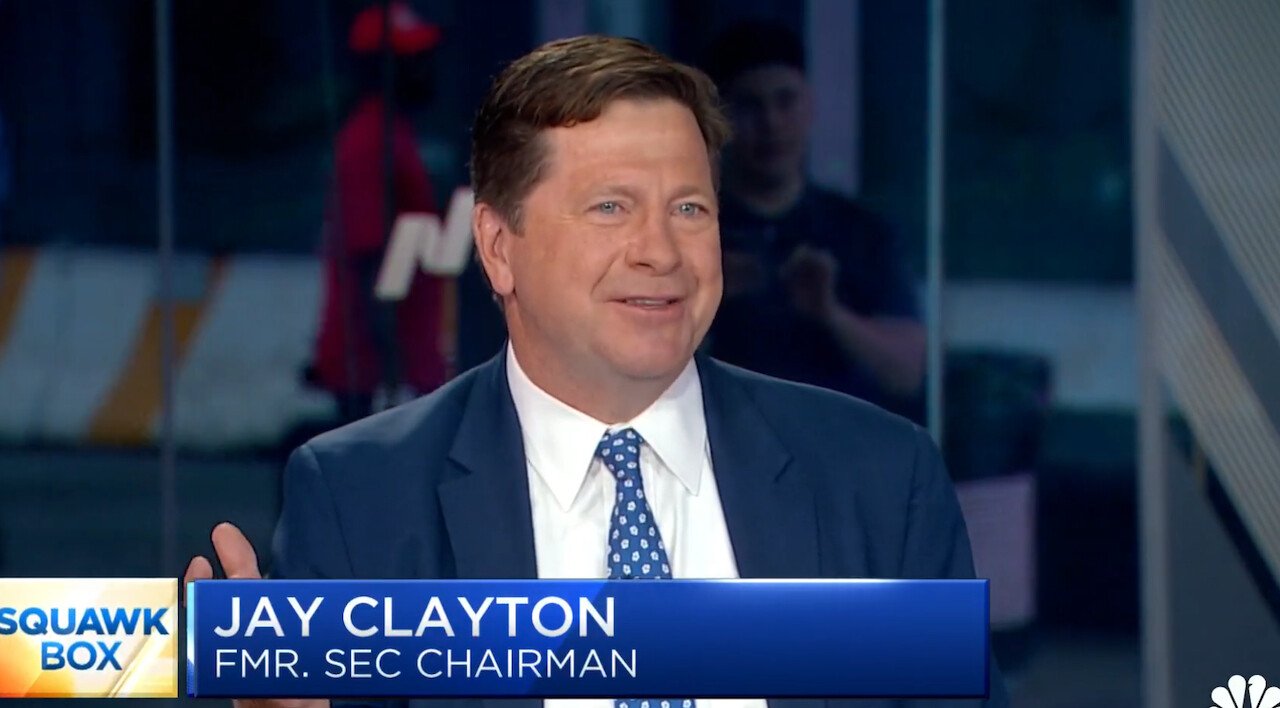Former SEC Chairman Highlights Conditions for Bitcoin ETF Approval
Former Securities and Exchange Commission (SEC) chairman Jay Clayton has said that a spot Bitcoin (BTC) exchange-traded fund (ETF) is likely to get approved if it can be shown that the Bitcoin spot market offers the same “efficacy” as the futures market.
“If they’re [applicants] right—that the spot market has similar efficacy to the futures market—it would be hard to resist approving a Bitcoin ETF,” Clayton said in an interview with CNBC on Monday.
He added in the interview that he was “very skeptical” about trading in the Bitcoin market when he was SEC chair, but also admitted that it will be tough for the SEC to argue that a spot-based ETF can’t be approved now that futures-based products already exist.
Clayton also explained that the fact that “institutions that know markets better than anybody” want to put their name on a spot Bitcoin ETF likely means that the spot market for Bitcoin has evolved and matured.
“I find that pretty remarkable,” he said.
BlackRock brings new optimism about spot Bitcoin ETF
The possibility that a spot-based Bitcoin ETF could be approved in the US is something that is once again getting lots of attention after the world’s largest asset manager BlackRock applied to list one in June.
The BlackRock application was then followed by similar applications by a number of other firms, including asset management giants like WisdomTree and Invesco.
The SEC has previously rejected all attempts at listing a spot Bitcoin ETF, arguing that spot Bitcoin markets are unregulated and can be manipulated.
Instead, the regulator has told the industry to only offer ETFs backed by Bitcoin futures contracts that are traded on CME, a regulated futures exchange in the US.
However, BlackRock’s near-perfect track record when it comes to getting its ETF applications approved has excited the market, with many now eyeing the possibility that the regulator could be changing its stance on the issue.
Out of 576 ETF applications from BlackRock over the course of its history, only one has so far been rejected by the SEC, Bloomberg has previously reported.





